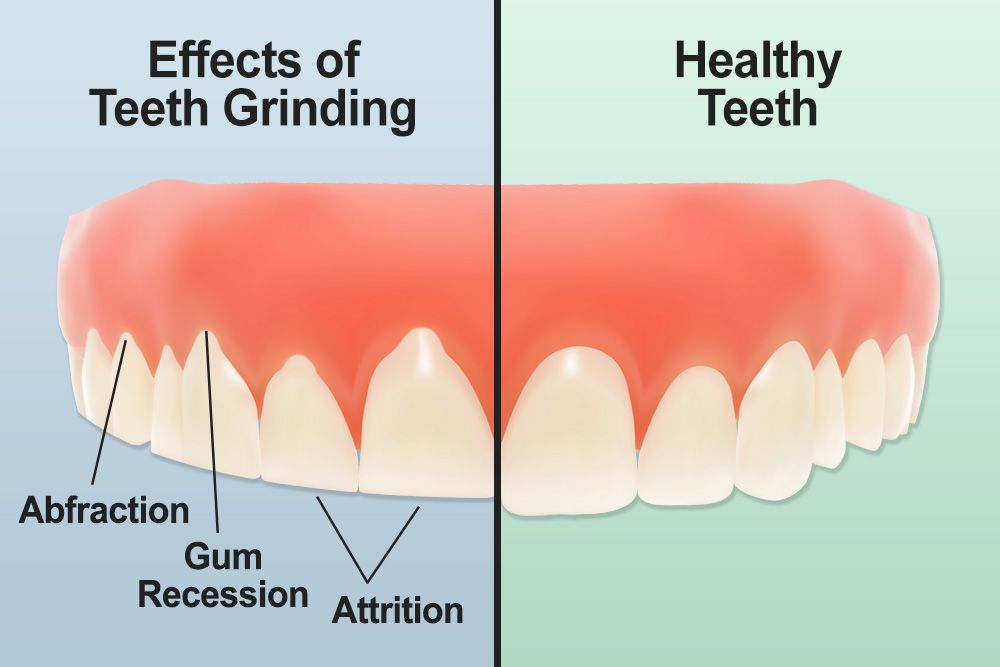Bruxism and Dental Damage: What You Should Know
 Bruxism, more commonly known as teeth grinding, can cause serious dental damage. Unfortunately, many people may not even be aware they suffer from this condition. In most cases, bruxism occurs during sleep, allowing teeth grinding to go undetected for years or until dental damage is present. Fortunately, there are treatment options to protect the teeth from bruxism and repair damage. Dr. Byron J. Nordhus offers a variety of restorative dentistry services to treat dental damage and restore the smile's health and beauty. For more information about treating dental damage and bruxism, schedule a consultation at Dr. Nordhus' Wichita, KS practice.
Bruxism, more commonly known as teeth grinding, can cause serious dental damage. Unfortunately, many people may not even be aware they suffer from this condition. In most cases, bruxism occurs during sleep, allowing teeth grinding to go undetected for years or until dental damage is present. Fortunately, there are treatment options to protect the teeth from bruxism and repair damage. Dr. Byron J. Nordhus offers a variety of restorative dentistry services to treat dental damage and restore the smile's health and beauty. For more information about treating dental damage and bruxism, schedule a consultation at Dr. Nordhus' Wichita, KS practice.
What Causes Bruxism?
A person may suffer from bruxism for one or more reasons. Sometimes bruxism is a result of increased stress or anxiety. It may be a temporary issue caused by consuming too much caffeine. It may also be caused by misaligned teeth or taking certain medications.
Dental Damage and Bruxism
Whatever the cause of bruxism, if it continues unchecked, it can cause permanent damage to the teeth. Because most bruxism occurs at night, an issue may not be noticed until dental damage is present. There are other symptoms besides dental damage that can indicate bruxism is present, including regularly waking up with a dull headache, sore jaw, or neck pain. If you suspect you suffer from bruxism, it's important to seek treatment as soon as possible to prevent dental damage, such as:
- Enamel wear: Teeth grinding creates friction between the teeth. Over time, this friction can wear the enamel, the protective layer of the teeth. As the enamel wears, the delicate structures of the teeth become exposed to bacteria and acids, leaving them vulnerable to decay.
- Tooth decay: As stated above, teeth grinding can cause enamel wear, which leaves the teeth vulnerable to decay.
- Dental fractures: The friction and stress placed on the teeth as a result of bruxism can also lead to dental fractures or chipped teeth.
- Attrition: Dental attrition is caused by friction. Attrition wears the teeth down, flattening the biting surfaces of the teeth and, if left untreated, can cause the teeth to wear down to nubs.
- Abfraction lesions: Bruxism can lead to the development of notches, or abfraction lesions, near the gum line. Abfraction lesions damage the enamel, leaving the teeth vulnerable to decay.
- Loose teeth and gum recession: The teeth may become loose in their sockets as a result of chronic teeth grinding. Teeth grinding also causes gum recession, which can contribute to the teeth becoming loose.
- Tooth loss: The teeth may become so severely damaged as a result of bruxism that they must be extracted to restore oral health or they may fall out on their own due to decay, loosening, or other damage.
Treatments for Bruxism
Treating bruxism can help prevent dental damage and protect your oral health. When worn during sleep, custom-made bite guards, or mouth guards, are highly effective at protecting the teeth from bruxism. Those who suffer from teeth grinding due to alignment issues often benefit from orthodontic treatment. Reducing caffeine intake and practicing stress-relieving activities, like mediation and yoga, can also reduce teeth grinding. Those who have experienced dental damage from bruxism can enjoy restored oral health and appearance with dental treatments such as porcelain veneers, dental bonding, or dental crowns.
Learn More about Your Treatment Options
Treating bruxism as soon as possible is essential to protecting your oral health. To find out which treatments are right for your needs, we encourage you to schedule a consultation with Dr. Nordhus today.


